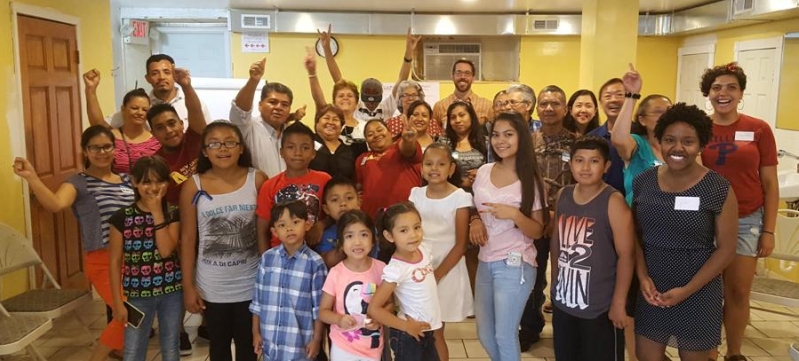
Leaders of religious congregations, including churches and synagogues, now are declaring themselves "sanctuaries" for immigrants fleeing deportation based on President-elect Donald Trump's threats to crackdown. These steps are being taken after New York, Chicago and Seattle mayors declared their cities "sanctuaries," as well as students, professors and alumni at elite universities, including Harvard, Yale and Brown, signed petitions asking their schools to protect undocumented students from any executive order.
During Trump's presidential campaign, he vowed to deport an estimated 11 million foreigners. Since his election victory, he said he would immediately deport 2 to 3 million undocumented immigrants who have been convicted of crimes.
On Nov. 15, an undocumented Mexican and father of three, who said he is determined to stay in the United States for the sake of his children, appeared at a news conference at Arch Street United Methodist Church, where he is seeking sanctuary from deportation by federal authorities. Javier Flores fled to the church ahead of an order to surrender to U.S. Immigration and Customs Enforcement. The 40-year-old north Philadelphia resident entered the United States without papers in 1997. Since then, he was deported and re-entered several times, reports RNS.
Rev. Robin Hynicka, senior pastor, said at the news conference Flores will have "a home with us, today and every day," if his family chooses to stay.
In the wake of recent political elections, there's been an "outpouring of inquiries and support" from congregations who want to sign on as sanctuary sites, said Peter Pedemonti, executive director of the New Sanctuary Movement of Philadelphia.
"Churches are saying, 'We want to do this. How do we get started?'" said Pedemonti, whose coalition includes 17 churches and two synagogues that have banded together to oppose deportations and offer their sanctuaries as safe havens.
Philadelphia Mayor Jim Kenney took national leadership by announcing Philly will stay a Sanctuary City. In the Inquirer, he said: "We've changed the name from sanctuary city to the Fourth Amendment city. We respect and live up to the Fourth Amendment, which means you can't be held against your will without a warrant from the court signed by a judge. So yeah, we will continue to be a Fourth Amendment city abiding by the Constitution."
Since 2014, 13 churches in nine cities have provided sanctuary to 15 people at risk of imminent deportation, said Noel Andersen, national grass-roots coordinator for Church World Service, which provides legal services for immigrants. He estimated 400 congregations nationwide support the efforts, or are willing to open their doors, to people fearing repatriation.
Churches, along with schools and hospitals, are considered "sensitive locations" by Immigration and Customs Enforcement and U.S. Customs and Border Protection. That means federal agents will avoid arresting, searching or interviewing people there under most circumstances.
The sanctuary tradition can be traced back to the Book of Numbers in the Bible, which cites six sanctuary cities throughout biblical Israel where a person who accidentally killed another could take refuge from anyone avenging the killing.
A more contemporary version is the American "sanctuary church" movement of the 1980s, in which hundreds of Central American refugees trying to avoid deportation sought shelter in churches.
"Churches need to follow their conscience," said the Rev. Gabriel Salguero, president of the National Latino Evangelical Coalition. "If they feel they need to protect undocumented immigrants, they're within their biblical and theological right to do so. But the real preference is immigration reform. Sanctuary churches is a response. It's not the answer."







